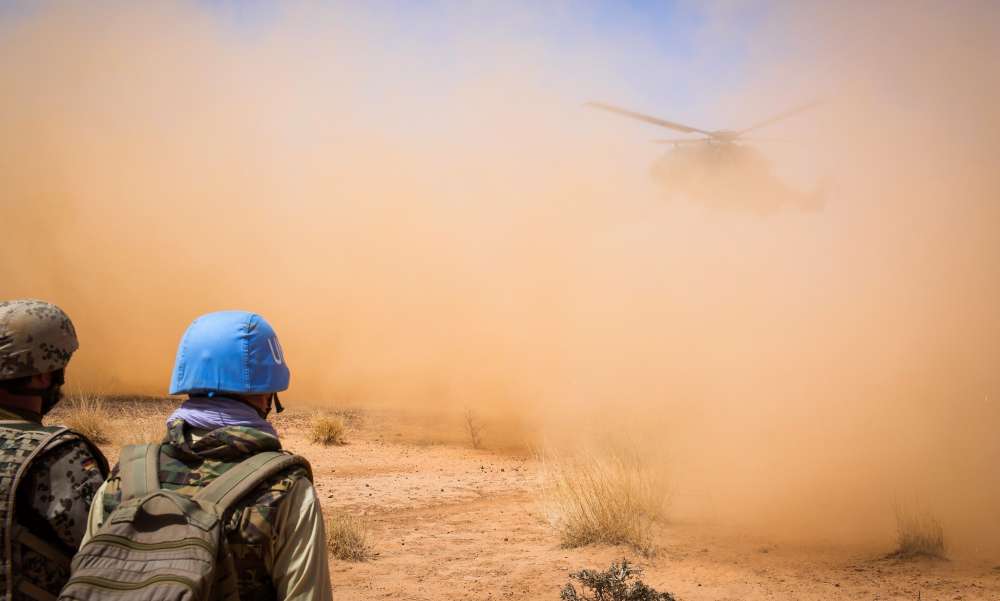Be Ready When It Counts: Germany’s Mali Policy

The German government is rethinking its engagement in the Sahel region. After 10 years, the German Bundeswehr is expected to end its deployment as part of the UN mission in Mali. However, civilian stabilization and development projects will continue as a way to – according to the German Development Minister Svenja Schulze – “deprive terrorism of its breeding ground” and thus prevent the Sahel region from becoming even more insecure.
But with Mali’s current military junta pursuing a strategy that is likely doomed to fail – i.e., a purely military offensive against jihadist groups – these efforts are unlikely to bear fruit. What Bamako needs is a government that is willing to negotiate with jihadist groups. Berlin should collaborate more closely with civil society groups to make sure they are ready for the moment when the military junta’s approach fails, creating an opportunity for political change.
Negotiating With Jihadists Is Necessary
To curb violence at the hands of jihadist groups, countries like France and Germany have primarily relied on military – but also developmental – approaches. Since 2013, the French-led military operation Barkhane has sought to defeat jihadist groups through the use of force. A decade later, life for Malians is more dangerous than ever. Using excessive violence to fight these groups – despite the military inferiority of Mali’s junta – will not stabilize Mali.
For sustainable peace, Mali needs a political solution that involves the jihadist groups. In recent years, such talks have proven their potential to make a difference. However, at the moment, there is little chance of bringing jihadists to the negotiating table: Mali’s military junta seems to have little interest in such talks. Nevertheless, the German government should continue exploring this route forward, especially given the Malian population’s openness to such negotiations. Malian civil society groups and religious leaders have also repeatedly demanded to open peace talks.
Prepare for Sudden Political Shifts
Even though long-term peace in Mali is currently out of sight, Germany should remain engaged in the country. Mali’s central location in the Sahel makes it a key player for achieving regional stability. If Mali is not secured in the long term, neighboring countries will continue to be affected by violent extremist groups.
What is more: Berlin must invest in continued engagement if it wants to be prepared to respond quickly the next time a short-term opportunity for political change (such as the mass protests in Sudan in 2019) arises. Being ready when it counts: this should be the intermediate step toward Germany’s ultimate political goal of supporting a Malian government that is accountable to its people.
The Junta’s Popularity Will Wane
No one knows when such an opportunity for political change in Mali may come. Currently, the military junta is still popular among the general population. However, it is safe to assume that their popularity will not continue in the long term. According to data from the Armed Conflict Location & Event Data Project, more people died in Mali last year than ever before. Malian soldiers and Russian mercenaries have significantly contributed to this gruesome reality, likely killing several hundred civilians in the village of Moura in March 2022. In the future, jihadist groups will continue to act violently, making life increasingly unsafe for Malians.
Enhancing security, however, is the top priority for civilians in Mali, as shown by a survey by the Friedrich Ebert Foundation. Since the military junta’s current approach will only lead to more insecurity, its popularity will wane sooner or later. Germany should be ready.
Working With Civil Society Groups
Since Mali’s present military junta has shown no interested in changing course, Germany should focus its efforts on finding partners within civil society. The fact that the German government has included this in its Sahel strategy is a correct step. As previous experiences have shown, these actors can wield significant political influence. For example, a coalition of civil society groups, religious leaders and political parties successfully mobilized protests three years ago that led to the overthrow of Mali’s former president. More recently, civil society representatives spoke out against the military junta’s constitutional reform, which ultimately pushed officials to postpone the scheduled referendum.
To explore shared priorities, the German government should continuously improve its understanding of these diverse groups, as their individual interests may quickly change as the crisis unfolds. It is also crucial to think outside of the box and collaborate with new groups that hold significant sway with the local community. For example, in Sudan, doing so might have helped Western countries to recognize the potential of the country’s influential neighborhood committees sooner.
In Mali, this could mean collaborating more with religious groups that enjoy a high standing among the local population and that already serve as a counterweight to the military junta. To do so, it will be important for states like Germany to balance conflicts of interest and make compromises when needed (e.g., forego gender parity). For such an approach to succeed, Germany will need a deeper political understanding of civil society groups, which are often seen – especially in development cooperation – as merely service providers.
A German version of this commentary was originally published in Tagesspeigel on May 25, 2023.







